
I don’t know what came over me to make me tell ARIA-award-winning, Australian art pop superstar Montaigne, that I’d just scoffed down a delicious vegan sausage when she asked me how I was. But it happened. And it seemed to be well-received by the voice on the other end so maybe all artist/journalist interactions should open with food-appreciation.
Since the release of Montaigne’s 2016 album Glorious Heights, she has gained huge local and commercial attention. Her brand new record Complex was released on 30 August and I get the chance to catch up about what it means to be a career musician, music as an emotional release and using your own power to help others.
Montaigne’s favourite song on her new album changes depending on her mood, but the song, ‘Is this all I am good for’, strikes her as the number one. “It’s the most tender and vulnerable song and I think it’s really beautiful for that. I think we did a really good job of making the extreme vulnerability of it palatable and glorious. Every time I listen to the song, it makes me feel both sad and uplifted. I think that’s a pretty special thing.”
I ask Montaigne about using music as an emotional release. “Yeah, it’s most of my emotional release… I think it’s both draining and positive. I think both can coexist… But I like it.” She laughs. “I think all things worth doing are a little bit hard. It’s part of the slog of it that makes the pay-off so sweet.”
We start talking about the decision to take on music as your career and what it means for your lifestyle. “You are an artist if you make art. But it was only early this year when I was like, ‘Oh, I don’t just write songs, I write poetry and I make things whether they be good or bad. I just make and express and that’s what I do.’”
Montaigne reflects that this realisation has pushed her to commit to music in a different way, involving dedication and hard work.
 “Now I’m a bit more committed to the craft in the sense that I try to do something every day. I sing every day, practice every day, and now I’ve gotten really good at it because I’ve actually started to put my head down and practice.”
“Now I’m a bit more committed to the craft in the sense that I try to do something every day. I sing every day, practice every day, and now I’ve gotten really good at it because I’ve actually started to put my head down and practice.”
As Montaigne has risen in popularity, from starting out in 2012 as a Triple J Unearthed High finalist, to winning Breakthrough Artist at the ARIAs and headlining tours around the country, she has maintained a self-awareness of influence she has gained.
“I feel like power is pretty useless unless you use it for good… The level of power any human celebrity has is unnatural and excessive and not necessary unless you’re using that power to do something good for other people. And that’s some duty I feel beholden to.” Montaigne refers to her environmental and political activism, which she expresses in her songs, her music videos, through her social media accounts, and within her own lifestyle.
“I didn’t plan to be an activist. I think it’s the same with music. I never as a 4-year-old planned on singing I just did it. I never planned to be a writer I just wrote. I never planned to be passionate about the environment I just was. And that naturally translates into action when you’re as motivated as I am.”
She says using her platform to advocate for these issues wasn’t always what she saw herself doing. “At the start of my career I definitely cared about the environment, but I wasn’t in the headspace to be talking about that stuff. I never focused on it because I was 19 and I was thinking about love and sex, and how to be okay with myself, and having a roof over my head, and working three different jobs.
“Now I have oodles of time. And I read the news and I’ve got my values in order. It’s because I have a good understanding of all those things which means that now I can care about these issues. They’re important to me and I think other people should see them as important too.”
Montaigne is inspiring in her strong will to be someone that helps others. In half of the questions I ask, they all come back to wanting to help. “Sometimes I get trapped in that thought of being self-absorbed [as a musician], but then people come up to me and tell me that I saved their life or thank me for writing my songs. Because they needed what I said to be articulated and they weren’t hearing it anywhere else, and they’re thankful for that.”
“And that’s really powerful and that’s what we as artists do. There’s a level of selfishness in it but I don’t think it is selfish if it’s helping someone else.” Montaigne is probably the least selfish artist around at the moment.
When I ask her about what kind of advice she would give to emerging artists, we start talking about the definition of ‘success’. “I think that’s different for everyone… I guess my advice would be to read a lot and be observant and take in everything and try to learn as much as possible.”
“Wanting to ‘make it big’ for me is saving the world, right?” We laugh, sharing that same hope and despair for a planet in crisis. “Because I would happily be at a medium, sustainable level my whole life. I don’t need heaps of money, I just need enough. I think the world would be a better place if people aspired to having enough or being enough, rather than excess.
“I don’t feel very comfortable giving advice because everyone has to figure their lives out for themselves… My definition of success is different to anyone else’s.”
As we wrap up the interview, I learn that Montaigne has close connections to Canberra which is always exciting. Hopefully we’ll see all of her Canberran extended family at her upcoming show at UC Hub, November 28th. If anything, maybe we can share a vegan sausage and laugh about the time I talked about sausages in an interview for no apparent reason.
Grab tickets to her Canberra show at UC Hub, 28 November.
Jayne Hoschke













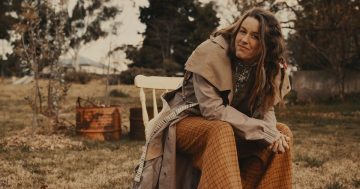


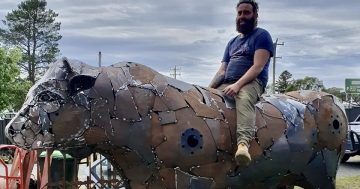
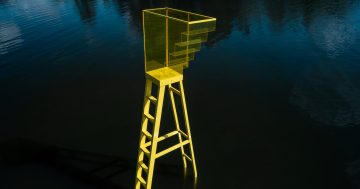
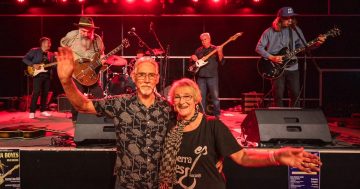
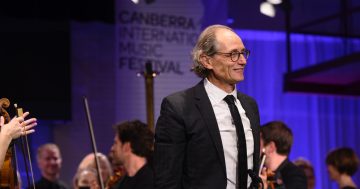
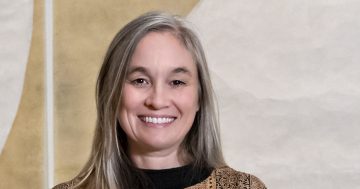

@chewy14 PS Population numbers are not even an example, they are an irrelevancy, when it comes to… View